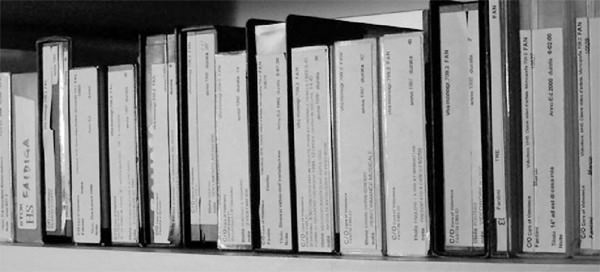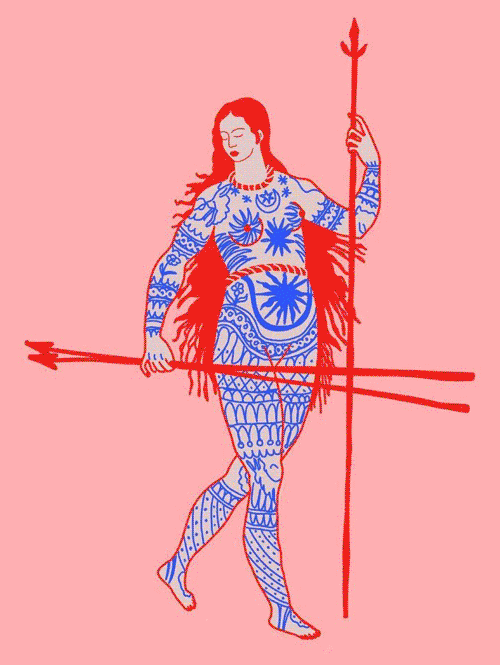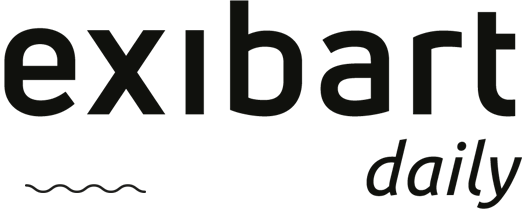Create an account
Welcome! Register for an account
La password verrà inviata via email.
Recupero della password
Recupera la tua password
La password verrà inviata via email.
-
- container colonna1
- Categorie
- #iorestoacasa
- Agenda
- Archeologia
- Architettura
- Arte antica
- Arte contemporanea
- Arte moderna
- Arti performative
- Attualità
- Bandi e concorsi
- Beni culturali
- Cinema
- Contest
- Danza
- Design
- Diritto
- Eventi
- Fiere e manifestazioni
- Film e serie tv
- Formazione
- Fotografia
- Libri ed editoria
- Mercato
- MIC Ministero della Cultura
- Moda
- Musei
- Musica
- Opening
- Personaggi
- Politica e opinioni
- Street Art
- Teatro
- Viaggi
- Categorie
- container colonna2
- container colonna1
Altri Discorsi
Attraversamenti dell’Archivio Video DOCVA
Comunicato stampa
Segnala l'evento
Altri Discorsi
Attraversamenti dell’Archivio Video DOCVA
da un'idea di Matteo Lucchetti e Chiara Agnello
a cura di Valentina Angeleri, Arianna Carcano, Michele D'Aurizio, Anita Gazzani,
GRID (Roberto Shwafaty, Paolo Caffoni), Matteo Lucchetti e Giulia Paciello
Con video di Keren Amiran, Maja Bajevic, Alex Billar, Rossella Biscotti, Alexander Brener,
Mircea Cantor, Luciano Celli, Danilo Correale, Paola di Bello, Jaume Fargas, Francesco Jodice,
Ugo La Pietra, Deborah Ligorio, Marcello Maloberti, Multiplicity, Otjesd, Mario Garcia Torres,
Luca Vitone, Martin Zet
+
Angel Nevarez & Valerie Tevere, Clemens von Wedemeyer, Jakup Ferri
Giovedì 28 maggio 2009 ore 18.30 inaugurazione e incontro con i curatori
Careof Docva, Fabbrica del Vapore, Milano
La mostra è aperta dal 29 maggio al 13 giugno 2009
dal martedì al sabato dalle 15.00 alle 19.00
Altri discorsi è un progetto che nasce dalla collaborazione di Careof DOCVA con i giovani curatori del Biennio specialistico in Arti visive e Studi curatoriali di NABA - Nuova Accademia di Belle Arti di Milano.
Careof ha organizzato negli anni un archivio con oltre 5000 video d'artista – a partire dalle sperimentazioni dei primi anni '70 sino ai lavori delle ultime generazioni – confluito recentemente nel più onnicomprensivo DOCVA Documentation Centre for Visual Art.
Il progetto Altri discorsi parte da una riflessione su temi legati all'archivio e sulle possibilità di portare in luce percorsi di lettura inediti del materiale conservato al DOCVA. Gli “altri discorsi” sono infatti quelli enunciati dalle selezioni operate da tre unità curatoriali del MA di NABA, che hanno lavorato in funzione di una ricerca critica in grado di attivare attraversamenti a lato del corpus dei contenuti dell'archivio.
Il progetto declina le proprie ricerche in maniera diversa per i due spazi coinvolti: Careof vedrà nel suo spazio espositivo una versione esplosa della ricerca attraverso tre video lesson simultanee (della durata di circa un’ora ciascuna), dove una sintesi del discorso svolto, tramite la selezione, verrà accompagnato da un allestimento che fornisce al pubblico materiali utili alla comprensione della ricerca. Parallelamente, al DOCVA verranno create postazioni fisse nelle quali potrà essere visionato un più ampio numero di titoli scelti.
Ogni unità curatoriale ha, inoltre, selezionato video esterni al catalogo DOCVA che potessero arricchire di senso il percorso tracciato, prevedendo l'acquisizione di questi nuovi materiali, nell'ottica di un'espansione critica dell'archivio.
La possibilità di leggere l'attualità attraverso un materiale del passato, aggiornato alla luce delle produzioni più recenti, rende l'archivio, così come lo vedeva Foucault, uno strumento di critica del presente.
Video lesson
(a ogni percorso corrisponde una selezione video di circa 60 min.)
1. I use roads that I don't own / di Valentina Angeleri e Matteo Lucchetti
La temporalità che l'Archivio Video DOCVA, ricopre in termini di produzione artistica, interessa un periodo storico che parte dagli anni '70 e arriva ai giovani artisti che lavorano oggi. In questo lasso di tempo il concetto di appartenenza e di accesso alla dimensione pubblica e privata del vivere sociale, ha subito ripensamenti e letture più o meno radicali. Gli spazi che organizzano l'esperienza collettiva sono oggi sottoposti ad una progressiva privatizzazione che ha condotto alla necessità della costruzione dello spazio pubblico come risultato del confronto discorsivo, aperto tra i soggetti, in opposizione a quello strategico e negoziale degli interessi.
La selezione operata tenta quindi di percorrere quella tensione tra pubblico e privato che trova nella definizione di "counter-public" di Michael Warner lo spazio di circolazione in cui l'azione si fa costruttiva: una sorta d’infrastruttura discorsiva che tenta di fornire costantemente nuove e diverse forme di socialità.
2. La città orizzontale / di Michele D'Aurizio, Anita Gazzani e Giulia Paciello
Combattere l'architettura iconica e la struttura panoptica della città. Recuperare un atteggiamento creativo e di riappropriazione nello spazio urbano. Abbattere le eterotopie. Per ripensare la società è necessario passare attraverso una ridefinizione del territorio antropizzato; la parola 'civiltà' del resto deriva dal latino 'civis', cittadino, come a dire che prima è sorta la città e dopo la civiltà. La modernità ha pianificato lo spazio urbano e spesso ha fallito; la post-modernità ha trasformato la città in un organismo famelico e conferito allo spazio costruito il ruolo di reiterare la condizione di inquietudine su cui si fonda la società attuale. Attraversando l'archivio di Careof individueremo alcuni letture anitconformiste dello spazio urbano. Imparando dai Situazionisti e dalle loro teorie sulla città; demistificando l'architettura come i Radicals. Per tornare da 'soggetti' ad essere 'cittadini'.
3. Jeux sans frontières / di GRID (Paolo Caffoni e Beto Shwafaty) e Arianna Carcano
Giochi senza frontiere è un varietà nato alla fine degli anni ¢60 come prototipo televisivo di un’identità culturale europea. I principi etici su cui si basava il gioco erano la sperimentazione di un federalismo basato sulla concorrenzialità moderata, politicamente sostenibile da paesi appena usciti da un conflitto mondiale. Ma che cosa è l’ Europa oggi? Cosa rimane degli ideali europei? Una forma protocollare che definisce criteri d’inclusione ed esclusione, fatta di simboli e monopoli mediatici.
Confrontandoci con l’Archivio, tentiamo d’identificare quei meccanismi e quelle dinamiche che costituiscono il brand continentale, e al tempo stesso marcano le forme di fuga verso produzioni soggettive d’identità.
---
Careof DOCVA
Fabbrica del Vapore, via Procaccini 4
20154 Milano
+39 02 3315800 careof@careof.org
www.careof.org www.docva.org
con il contributo di
Altri Discorsi
Crossing the DOCVA Video Archive
an idea by Matteo Lucchetti and Chiara Agnello
curated by Valentina Angeleri, Arianna Carcano, Michele D'Aurizio, Anita Gazzani, GRID (Roberto Shwafaty. Paolo Caffoni) , Matteo Lucchetti and Giulia Paciello.
With videos by Keren Amiran, Maja Bajevic, Alex Billar, Rossella Biscotti, Alexander Brener,
Mircea Cantor, Luciano Celli, Danilo Correale, Paola di Bello, Jaume Fargas, Francesco Jodice,
Ugo La Pietra, Deborah Ligorio, Marcello Maloberti, Multiplicity, Otjesd, Mario Garcia Torres,
Luca Vitone, Martin Zet
+
Angel Nevarez & Valerie Tevere, Clemens von Wedemeyer, Jakup Ferri
Opening and talk with curators, Thursday May 28th 2009 at 6.30 pm
Careof Docva, Fabbrica del Vapore, Milan
exhibition open from May 29th to June 13th 2009
from Thursday to Saturday from 3.00pm to 7.00pm
Altri Discorsi is a project born from the collaboration between Careof DOCVA and young curators coming from the MA in Visual Arts and Curatorial studies at NABA – New Academy of Fine Arts Milan.
Over the years Careof has created an archive with more than 5000 artist's videos – starting from the first experimentations of the 70's to the works of the last generations – recently merged into the all-comprehensive DOCVA Documentation Centre for Visual Art.
The project Altri Discorsi starts from a reflection over the issues related to the archive and over the possibilities to shed light on inedited reading programs for the material present inside the Video Archive. Altri Discorsi are infact those enunciated by the selections established by three curatorial units coming from NABA's MA, that has worked on the basis of a critical research able to activate crossings beside the archive's corpus of contents. The project chooses different modalities for the two spaces implicated: Careof will show in its display a blown-up research version through three simultaneous video lessons, where a synthesis of the discourse carried out by the selection will be followed by an installation that supplies the spectators with every useful material for the research's understanding. At the same time, at DOCVA will be created fixed workspaces in which a wider range of selected titles will be at the audience's disposal to be screened.
Each curatorial unit has, moreover, selectioned external videos that could enrich the meaning of the traced course, planning the acquisition of these new materials, in the in light of a critical expansion of the archive.
The opportunity of reading the actuality through the past material, updated in the light of the more recent productions, makes the archive, as Focault saw it, a critical instrument for the present.
Video lessons
(each path corresponds to a video selection of about 60 min):
1. I use roads that I don't own / by Valentina Angeleri and Matteo Lucchetti
The time covered by DOCVA's Video Archive, organized by Careof, in terms of artistic production, relates to an historical period that starts from the 70's and reaches the artists working nowadays. In this period of time the concept of belonging and accessing to the social life's public and private dimension, suffered second thoughts and more or less radical readings. The spaces that organize the collective experience are today subjected to a progressive privatization that has caused the need of a setting up of the public space as result of the colloquial comparison, open among the subjects, in opposition to the more strategic and negotiable discourses of interests.
The selection tries to go through the tension between the public and the private finding its definition in the therm “counter-public” by Michael Warner, the space of circulation in which action becomes constructive: a sort of colloquial infrastructure that constantly tries to offer new and different forms of society.
2. The horizontal city / by Michele D'Aurizio, Anita Gazzani and Giulia Paciello
Fight against the iconic architecture and the panoptic structure of the society. Recover a creative approach and retake the urban space. Demolish heterotopies. In order to rethink the society it is necessary to go through a redefinition of the human-inhabited territory; the word “civilization” comes form the latin “civis”, citizen, as to say that cities had been raised before civilizations were born. Modernism planned the urban space and often failed; post-modernism turned the city into a famished organism and the constructed space reiterates the status quo of anxiety on which the current society is based. Going through the Careof video archive we will identify some anticonformistic interpretations of the urban space. Learning from Situationists and from their theories on the city; demistifying the architecture as Radicals have done. And try to emancipate ourself from being 'subjects' and become 'citizens'.
3. Jeux sans frontières / by GRID (Paolo Caffoni - Beto Shwafaty) and Arianna Carcano
Jeux Sans Frontières is a variety show born at the end of the 60's as television prototype of a European cultural identity. The ethic principles on which the game was based were the experimentation of a federalism established on a moderate competition, politically supported by countries just gone out from a global conflict. But what is the Europe today? What remains of the European values? A protocol form that defines inclusion and exclusion criteria, made of symbols and mediatic monopoles.
Tackling with the archive, we try to identify those mechanisms and those dynamics that form the continental brand, and at the same time mark the forms of flight towards subjective productions of identities.
Attraversamenti dell’Archivio Video DOCVA
da un'idea di Matteo Lucchetti e Chiara Agnello
a cura di Valentina Angeleri, Arianna Carcano, Michele D'Aurizio, Anita Gazzani,
GRID (Roberto Shwafaty, Paolo Caffoni), Matteo Lucchetti e Giulia Paciello
Con video di Keren Amiran, Maja Bajevic, Alex Billar, Rossella Biscotti, Alexander Brener,
Mircea Cantor, Luciano Celli, Danilo Correale, Paola di Bello, Jaume Fargas, Francesco Jodice,
Ugo La Pietra, Deborah Ligorio, Marcello Maloberti, Multiplicity, Otjesd, Mario Garcia Torres,
Luca Vitone, Martin Zet
+
Angel Nevarez & Valerie Tevere, Clemens von Wedemeyer, Jakup Ferri
Giovedì 28 maggio 2009 ore 18.30 inaugurazione e incontro con i curatori
Careof Docva, Fabbrica del Vapore, Milano
La mostra è aperta dal 29 maggio al 13 giugno 2009
dal martedì al sabato dalle 15.00 alle 19.00
Altri discorsi è un progetto che nasce dalla collaborazione di Careof DOCVA con i giovani curatori del Biennio specialistico in Arti visive e Studi curatoriali di NABA - Nuova Accademia di Belle Arti di Milano.
Careof ha organizzato negli anni un archivio con oltre 5000 video d'artista – a partire dalle sperimentazioni dei primi anni '70 sino ai lavori delle ultime generazioni – confluito recentemente nel più onnicomprensivo DOCVA Documentation Centre for Visual Art.
Il progetto Altri discorsi parte da una riflessione su temi legati all'archivio e sulle possibilità di portare in luce percorsi di lettura inediti del materiale conservato al DOCVA. Gli “altri discorsi” sono infatti quelli enunciati dalle selezioni operate da tre unità curatoriali del MA di NABA, che hanno lavorato in funzione di una ricerca critica in grado di attivare attraversamenti a lato del corpus dei contenuti dell'archivio.
Il progetto declina le proprie ricerche in maniera diversa per i due spazi coinvolti: Careof vedrà nel suo spazio espositivo una versione esplosa della ricerca attraverso tre video lesson simultanee (della durata di circa un’ora ciascuna), dove una sintesi del discorso svolto, tramite la selezione, verrà accompagnato da un allestimento che fornisce al pubblico materiali utili alla comprensione della ricerca. Parallelamente, al DOCVA verranno create postazioni fisse nelle quali potrà essere visionato un più ampio numero di titoli scelti.
Ogni unità curatoriale ha, inoltre, selezionato video esterni al catalogo DOCVA che potessero arricchire di senso il percorso tracciato, prevedendo l'acquisizione di questi nuovi materiali, nell'ottica di un'espansione critica dell'archivio.
La possibilità di leggere l'attualità attraverso un materiale del passato, aggiornato alla luce delle produzioni più recenti, rende l'archivio, così come lo vedeva Foucault, uno strumento di critica del presente.
Video lesson
(a ogni percorso corrisponde una selezione video di circa 60 min.)
1. I use roads that I don't own / di Valentina Angeleri e Matteo Lucchetti
La temporalità che l'Archivio Video DOCVA, ricopre in termini di produzione artistica, interessa un periodo storico che parte dagli anni '70 e arriva ai giovani artisti che lavorano oggi. In questo lasso di tempo il concetto di appartenenza e di accesso alla dimensione pubblica e privata del vivere sociale, ha subito ripensamenti e letture più o meno radicali. Gli spazi che organizzano l'esperienza collettiva sono oggi sottoposti ad una progressiva privatizzazione che ha condotto alla necessità della costruzione dello spazio pubblico come risultato del confronto discorsivo, aperto tra i soggetti, in opposizione a quello strategico e negoziale degli interessi.
La selezione operata tenta quindi di percorrere quella tensione tra pubblico e privato che trova nella definizione di "counter-public" di Michael Warner lo spazio di circolazione in cui l'azione si fa costruttiva: una sorta d’infrastruttura discorsiva che tenta di fornire costantemente nuove e diverse forme di socialità.
2. La città orizzontale / di Michele D'Aurizio, Anita Gazzani e Giulia Paciello
Combattere l'architettura iconica e la struttura panoptica della città. Recuperare un atteggiamento creativo e di riappropriazione nello spazio urbano. Abbattere le eterotopie. Per ripensare la società è necessario passare attraverso una ridefinizione del territorio antropizzato; la parola 'civiltà' del resto deriva dal latino 'civis', cittadino, come a dire che prima è sorta la città e dopo la civiltà. La modernità ha pianificato lo spazio urbano e spesso ha fallito; la post-modernità ha trasformato la città in un organismo famelico e conferito allo spazio costruito il ruolo di reiterare la condizione di inquietudine su cui si fonda la società attuale. Attraversando l'archivio di Careof individueremo alcuni letture anitconformiste dello spazio urbano. Imparando dai Situazionisti e dalle loro teorie sulla città; demistificando l'architettura come i Radicals. Per tornare da 'soggetti' ad essere 'cittadini'.
3. Jeux sans frontières / di GRID (Paolo Caffoni e Beto Shwafaty) e Arianna Carcano
Giochi senza frontiere è un varietà nato alla fine degli anni ¢60 come prototipo televisivo di un’identità culturale europea. I principi etici su cui si basava il gioco erano la sperimentazione di un federalismo basato sulla concorrenzialità moderata, politicamente sostenibile da paesi appena usciti da un conflitto mondiale. Ma che cosa è l’ Europa oggi? Cosa rimane degli ideali europei? Una forma protocollare che definisce criteri d’inclusione ed esclusione, fatta di simboli e monopoli mediatici.
Confrontandoci con l’Archivio, tentiamo d’identificare quei meccanismi e quelle dinamiche che costituiscono il brand continentale, e al tempo stesso marcano le forme di fuga verso produzioni soggettive d’identità.
---
Careof DOCVA
Fabbrica del Vapore, via Procaccini 4
20154 Milano
+39 02 3315800 careof@careof.org
www.careof.org www.docva.org
con il contributo di
Altri Discorsi
Crossing the DOCVA Video Archive
an idea by Matteo Lucchetti and Chiara Agnello
curated by Valentina Angeleri, Arianna Carcano, Michele D'Aurizio, Anita Gazzani, GRID (Roberto Shwafaty. Paolo Caffoni) , Matteo Lucchetti and Giulia Paciello.
With videos by Keren Amiran, Maja Bajevic, Alex Billar, Rossella Biscotti, Alexander Brener,
Mircea Cantor, Luciano Celli, Danilo Correale, Paola di Bello, Jaume Fargas, Francesco Jodice,
Ugo La Pietra, Deborah Ligorio, Marcello Maloberti, Multiplicity, Otjesd, Mario Garcia Torres,
Luca Vitone, Martin Zet
+
Angel Nevarez & Valerie Tevere, Clemens von Wedemeyer, Jakup Ferri
Opening and talk with curators, Thursday May 28th 2009 at 6.30 pm
Careof Docva, Fabbrica del Vapore, Milan
exhibition open from May 29th to June 13th 2009
from Thursday to Saturday from 3.00pm to 7.00pm
Altri Discorsi is a project born from the collaboration between Careof DOCVA and young curators coming from the MA in Visual Arts and Curatorial studies at NABA – New Academy of Fine Arts Milan.
Over the years Careof has created an archive with more than 5000 artist's videos – starting from the first experimentations of the 70's to the works of the last generations – recently merged into the all-comprehensive DOCVA Documentation Centre for Visual Art.
The project Altri Discorsi starts from a reflection over the issues related to the archive and over the possibilities to shed light on inedited reading programs for the material present inside the Video Archive. Altri Discorsi are infact those enunciated by the selections established by three curatorial units coming from NABA's MA, that has worked on the basis of a critical research able to activate crossings beside the archive's corpus of contents. The project chooses different modalities for the two spaces implicated: Careof will show in its display a blown-up research version through three simultaneous video lessons, where a synthesis of the discourse carried out by the selection will be followed by an installation that supplies the spectators with every useful material for the research's understanding. At the same time, at DOCVA will be created fixed workspaces in which a wider range of selected titles will be at the audience's disposal to be screened.
Each curatorial unit has, moreover, selectioned external videos that could enrich the meaning of the traced course, planning the acquisition of these new materials, in the in light of a critical expansion of the archive.
The opportunity of reading the actuality through the past material, updated in the light of the more recent productions, makes the archive, as Focault saw it, a critical instrument for the present.
Video lessons
(each path corresponds to a video selection of about 60 min):
1. I use roads that I don't own / by Valentina Angeleri and Matteo Lucchetti
The time covered by DOCVA's Video Archive, organized by Careof, in terms of artistic production, relates to an historical period that starts from the 70's and reaches the artists working nowadays. In this period of time the concept of belonging and accessing to the social life's public and private dimension, suffered second thoughts and more or less radical readings. The spaces that organize the collective experience are today subjected to a progressive privatization that has caused the need of a setting up of the public space as result of the colloquial comparison, open among the subjects, in opposition to the more strategic and negotiable discourses of interests.
The selection tries to go through the tension between the public and the private finding its definition in the therm “counter-public” by Michael Warner, the space of circulation in which action becomes constructive: a sort of colloquial infrastructure that constantly tries to offer new and different forms of society.
2. The horizontal city / by Michele D'Aurizio, Anita Gazzani and Giulia Paciello
Fight against the iconic architecture and the panoptic structure of the society. Recover a creative approach and retake the urban space. Demolish heterotopies. In order to rethink the society it is necessary to go through a redefinition of the human-inhabited territory; the word “civilization” comes form the latin “civis”, citizen, as to say that cities had been raised before civilizations were born. Modernism planned the urban space and often failed; post-modernism turned the city into a famished organism and the constructed space reiterates the status quo of anxiety on which the current society is based. Going through the Careof video archive we will identify some anticonformistic interpretations of the urban space. Learning from Situationists and from their theories on the city; demistifying the architecture as Radicals have done. And try to emancipate ourself from being 'subjects' and become 'citizens'.
3. Jeux sans frontières / by GRID (Paolo Caffoni - Beto Shwafaty) and Arianna Carcano
Jeux Sans Frontières is a variety show born at the end of the 60's as television prototype of a European cultural identity. The ethic principles on which the game was based were the experimentation of a federalism established on a moderate competition, politically supported by countries just gone out from a global conflict. But what is the Europe today? What remains of the European values? A protocol form that defines inclusion and exclusion criteria, made of symbols and mediatic monopoles.
Tackling with the archive, we try to identify those mechanisms and those dynamics that form the continental brand, and at the same time mark the forms of flight towards subjective productions of identities.
28
maggio 2009
Altri Discorsi
Dal 28 maggio al 13 giugno 2009
arte contemporanea
Location
DOCVA – DOCUMENTATION CENTER FOR VISUAL ARTS
Milano, Via Giulio Cesare Procaccini, 4, (Milano)
Milano, Via Giulio Cesare Procaccini, 4, (Milano)
Orario di apertura
dal martedì al sabato dalle 15.00 alle 19.00
Vernissage
28 Maggio 2009, ore 18.30 incontro con i curatori
Autore
Curatore









